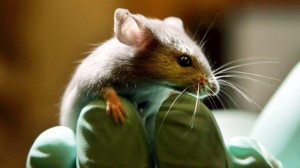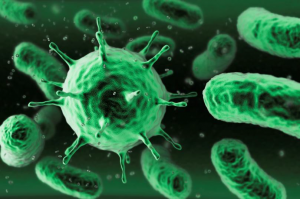
Probiotics May Help Alleviate Autism Symptoms
Probiotics can be found in many foods, like yogurt, soups, and even pizza, and are often viewed as a “cure-all” –from improving digestive health and immune function, to lowering cholesterol levels.
Probiotics are live organisms that, when taken in adequate amounts, have the ability to quickly colonize the gastrointestinal track and increase the amount of beneficial microbes, creating a balance in the gut microbiota that is considered health enhancing.
Autism Spectrum Disorder (ASD) is a neurobiological condition that impairs children’s social and communicative functioning, and often presents in the first three years of life. Many children with autism experience severe gastrointestinal problems, and the associated discomfort often worsens behavior.
Currently, there is no cure for autism, nor have any drugs been developed to treat symptoms. And no screening test can determine if a child is at risk for autism. The disorder can sometimes be detected in 18 month olds, but the majority are not diagnosed until much older.
Recently, California Institute of Technology researcher, Elaine Hsiao found that treating mice who exhibit autistic symptoms with probiotics can restore both gut barrier function and behavioural abnormalities.

In Hsiao’s study, researchers injected pregnant mice with a virus that enhanced anxiety, decreased ultrasonic vocalizations, increased gut barrier permeability, and shifted the gut micro flora in the offspring. When the offspring were given a human strain of Bacteroides fragilis as a probiotic, the bacterial balance was restored, and autism-like behavioural symptoms were alleviated.
A serum metabolite called 4-ethylphenylsulfate, produced by some mice gut bacteria, was found to be elevated in the offspring of the autism model. After the probiotic injection, this metabolite decreased to normal levels. Furthermore, injecting 4-ethylphenylsulfate into normal mice produced symptoms of anxiety, suggesting that this metabolite, in combination with others, affects neural circuits linked to autism.
Neurologist Natasha Campbell-McBride, formerly at Bashkir Medical University in Russia,reported that almost all mothers of autistic children have irregular gut flora. This is noteworthy since at the time of birth, newborns inherit gut flora from mothers. An analysis of the gut micro floras of healthy and autistic children revealed that gut micro flora in autistic children is of lower quantity and diversity.
Studies have shown that infants born by C-section develop dissimilar and less diverse micro flora than naturally born babies. It seems passage through the birth canal has a positive effect on the infant’s gut bacteria and may play a preventative role in autism.
The percentage of women having C-sections in the U.S. has increased from 5-10% in 1965 to 32.8% today. According to the Centers of Disease Control and Prevention (CDC), autism rates are also on the rise. Fifteen years ago, 1 in 10,000 children were diagnosed with autism. Ten years ago, 1 in 1,000. Current statistics from the CDC report the figure as 1 in 50.

Taken orally, probiotics have been deemed safe and are well tolerated for use during pregnancy. The most common adverse side effects reported are bloating and flatulence, which typically subside with continued use. It is still unclear which strain of probiotic may be most beneficial.
To date, the Food and Drug Administration (FDA) has not approved any specific probiotic health claims and the quantity of probiotics needed to be beneficial is still unclear.
Celebrities like Jenny McCarthy believe that symptoms of autism can be relieved by dietary changes. McCarthy claims a strict wheat and dairy-free diet cured her son. But anecdotal reports are of limited value, often reflecting the idiosyncratic opinions of influential individuals.
Large-scale clinical trials that study the effects of diet on those with autism are needed. In the meantime, anecdotal evidence is compelling and may eventually lead to definitive findings.
Shifting micro flora in the gut may make a potentially useful treatment for autism available. The method may even make assessing a genetic predisposition to autism possible.
Research is still in its early phases. Probiotics may improve digestive health, but the jury is still out on whether they can definitively reduce autism symptoms.
-Jenna Ulrich, Contributing Writer



